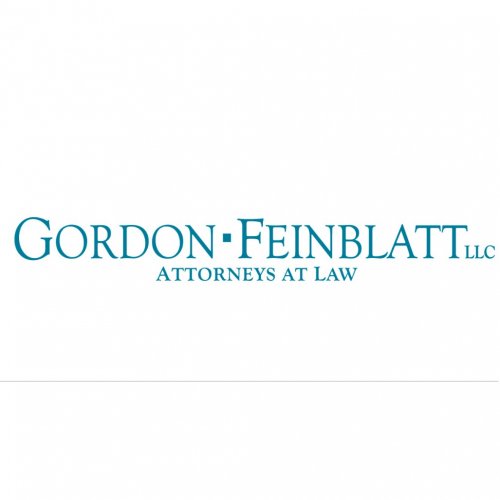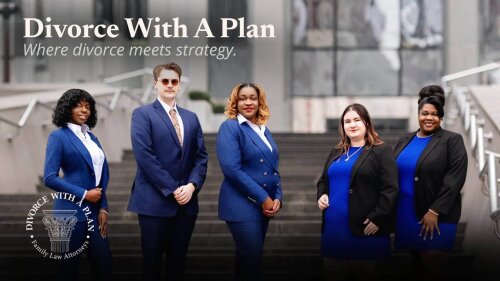Best Collaborative Law Lawyers in Baltimore
Share your needs with us, get contacted by law firms.
Free. Takes 2 min.
Free Guide to Hiring a Family Lawyer
List of the best lawyers in Baltimore, United States
About Collaborative Law in Baltimore, United States
Collaborative Law is a legal approach aimed at resolving disputes and conflicts in a non-adversarial manner. In Baltimore, United States, Collaborative Law provides an alternative to traditional litigation, focusing on cooperation, open communication, and finding mutually acceptable solutions.
Why You May Need a Lawyer
There are several situations where you may require legal help in Collaborative Law:
- Divorce or separation
- Child custody or support matters
- Disputes related to property division
- Parenting plans and visitation rights
- Modification of existing agreements
Local Laws Overview
While Collaborative Law is a flexible process, it is important to be aware of the key aspects of local laws in Baltimore, United States. Some relevant points include:
- Requirements for filing agreements reached through collaboration with the court
- Local guidelines for child custody, support, and visitation
- Division of property and assets under Baltimore laws
- Timeframes and procedures for modifying existing agreements
- Any additional legal considerations specific to Baltimore
Frequently Asked Questions
Q: What is the role of a Collaborative Law attorney?
A: A Collaborative Law attorney represents and guides you throughout the process. They work to reach mutually beneficial outcomes and help you understand your rights and legal options.
Q: How does Collaborative Law differ from traditional litigation?
A: Unlike traditional litigation, Collaborative Law promotes cooperation and open dialogue, focusing on finding creative solutions rather than engaging in courtroom battles. It encourages parties to work together, often resulting in a more cost-effective and amicable resolution.
Q: Can I use Collaborative Law for any legal dispute?
A: Collaborative Law is primarily used in family law matters, such as divorce, child custody, and support. However, it may be applicable to other types of disputes where parties are willing to engage in cooperative problem-solving.
Q: Is Collaborative Law legally binding?
A: Yes, any agreements reached through the Collaborative Law process can be made legally binding once approved by the court, ensuring their enforceability.
Q: What happens if collaboration fails to resolve the dispute?
A: If collaboration fails, the parties involved must hire new attorneys for any future litigation. The Collaborative Law attorneys are disqualified from representing them in court proceedings.
Additional Resources
For further information and legal assistance, you may find these resources helpful:
- Baltimore Collaborative Law Association - www.baltimorecollaborativelaw.com
- Maryland Judiciary's Family Law Self-Help Center - www.courts.state.md.us/family
- Maryland State Bar Association - Family and Collaborative Law Section - www.msba.org/sections/family-collaborative-law
Next Steps
If you require legal assistance and advice in Collaborative Law, here's how you can proceed:
- Research and gather information about your specific legal situation.
- Consider consulting with an experienced Collaborative Law attorney.
- Prepare any relevant documents or information for your initial consultation.
- Communicate openly and honestly with your attorney about your goals and concerns.
- Work collaboratively with your attorney to explore the best possible legal solutions.
Lawzana helps you find the best lawyers and law firms in Baltimore through a curated and pre-screened list of qualified legal professionals. Our platform offers rankings and detailed profiles of attorneys and law firms, allowing you to compare based on practice areas, including Collaborative Law, experience, and client feedback.
Each profile includes a description of the firm's areas of practice, client reviews, team members and partners, year of establishment, spoken languages, office locations, contact information, social media presence, and any published articles or resources. Most firms on our platform speak English and are experienced in both local and international legal matters.
Get a quote from top-rated law firms in Baltimore, United States — quickly, securely, and without unnecessary hassle.
Disclaimer:
The information provided on this page is for general informational purposes only and does not constitute legal advice. While we strive to ensure the accuracy and relevance of the content, legal information may change over time, and interpretations of the law can vary. You should always consult with a qualified legal professional for advice specific to your situation.
We disclaim all liability for actions taken or not taken based on the content of this page. If you believe any information is incorrect or outdated, please contact us, and we will review and update it where appropriate.











